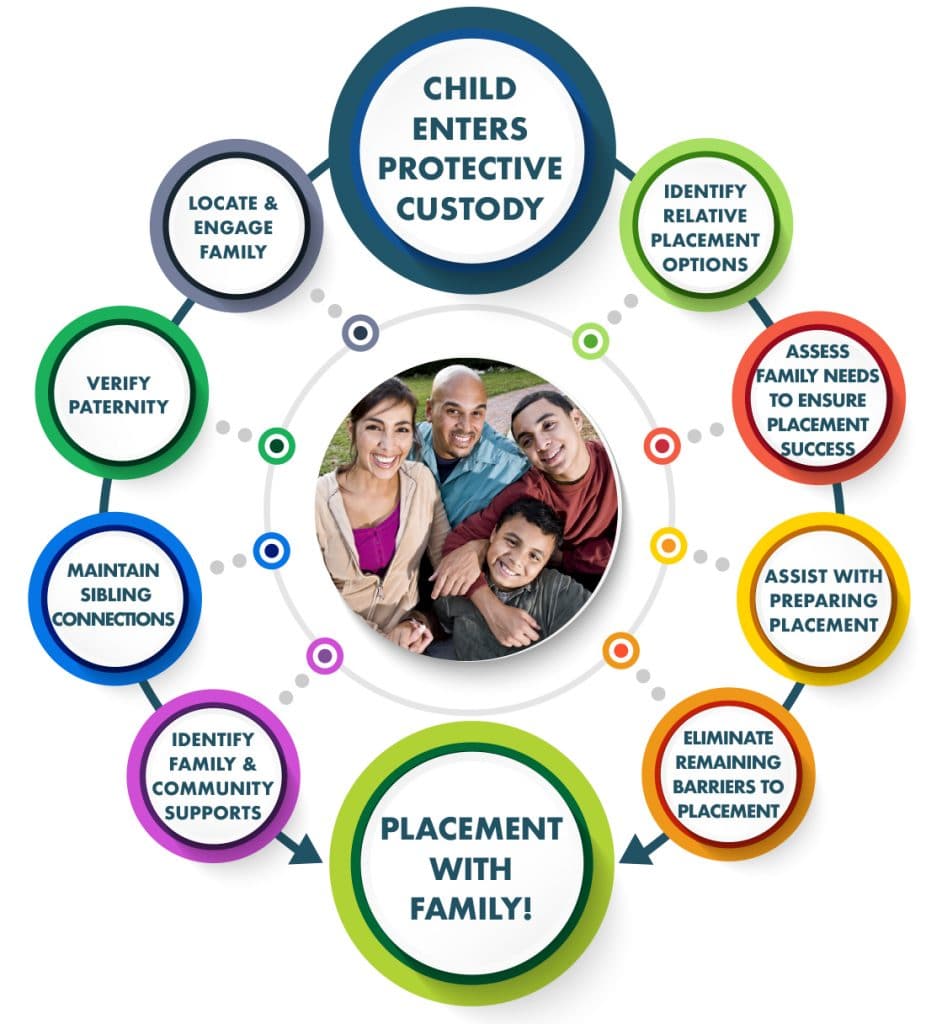What is 30 Days to Family®?
30 Days to Family® is an intense, short-term intervention developed by the Foster & Adoptive Care Coalition to:
1) increase the number of children placed with relatives when they enter the foster care system; and
2) ensure natural and community supports are in place to promote stability for the child.
Eligibility
1) Child is entering foster care in one of our 24 counties.
2) Child is between the ages of 0-17 at the time of intake.
3) Child has entered/re-entered the foster care system and a referral is received prior to the initial court hearing.
4) Child has no approved identified relative option for placement.
5) Child can be safely placed in the community within 30 days.
30 DAYS TO FAMILY®
REFERRAL FORM



Why Relatives?
There have been numerous studies comparing youth in traditional foster homes with those in relative care and the benefits are enormous.
O’Brien (2012) found relative care increased:
- Placement stability
- Identity formation
- Contact with family
- Living with Siblings
- Caregiver tolerance for behavioral and mental health issues
Washington et al. (2014) also found that those in relative care experienced reductions in behavioral issues compared to those in traditional foster placements.

Children served by 30 Days to Family®:
- Reported more positive relationships with mother: 61% vs. 30% not served
- Reported more contact with paternal relatives: 79% vs. 29% in non-relative homes
- Reported greater involvement in extracurriculars: 60% vs. 45% in non-relative homes
- Reported greater involvement in employment: 60% vs. 21% not served
- Saved taxpayers an average of $10,217 per child served
- Saved taxpayers an average of $28,819 if the child served has an identified disability
- Caregivers reported better ability to manage stress: 91% vs. 64% not served
Children served by 30 Days to Family®:
The real measure of success is placement stability, which occurs through family support and engagement. 30 Days to Family® has an 88% placement stability rate, largely because supports are wrapped around the child and family through the Roadmap to Family, which explores:
- Community activities
- Mentors
- Emotional Support
- Respite Care
- Transportation
- Other supports specific to the child and family
The evaluation found that The Roadmap to Family improves placement stability, because 91% of caregivers served by 30 Days to Family® reported that they were better able to manage stress, compared to 64% of caregivers not served.
- Children served experience less residential care: 14% vs. 26% without relative placement
Learn More
about 30 Days to a Family®

“This page was made possible in collaboration with the Institute for Child Welfare Innovation (www.forchildwelfare.org),
licensed to nationally replicate 30 Days to Family®, a program developed by the Foster & Adoptive Care Coalition of Saint Louis, Missouri.”

